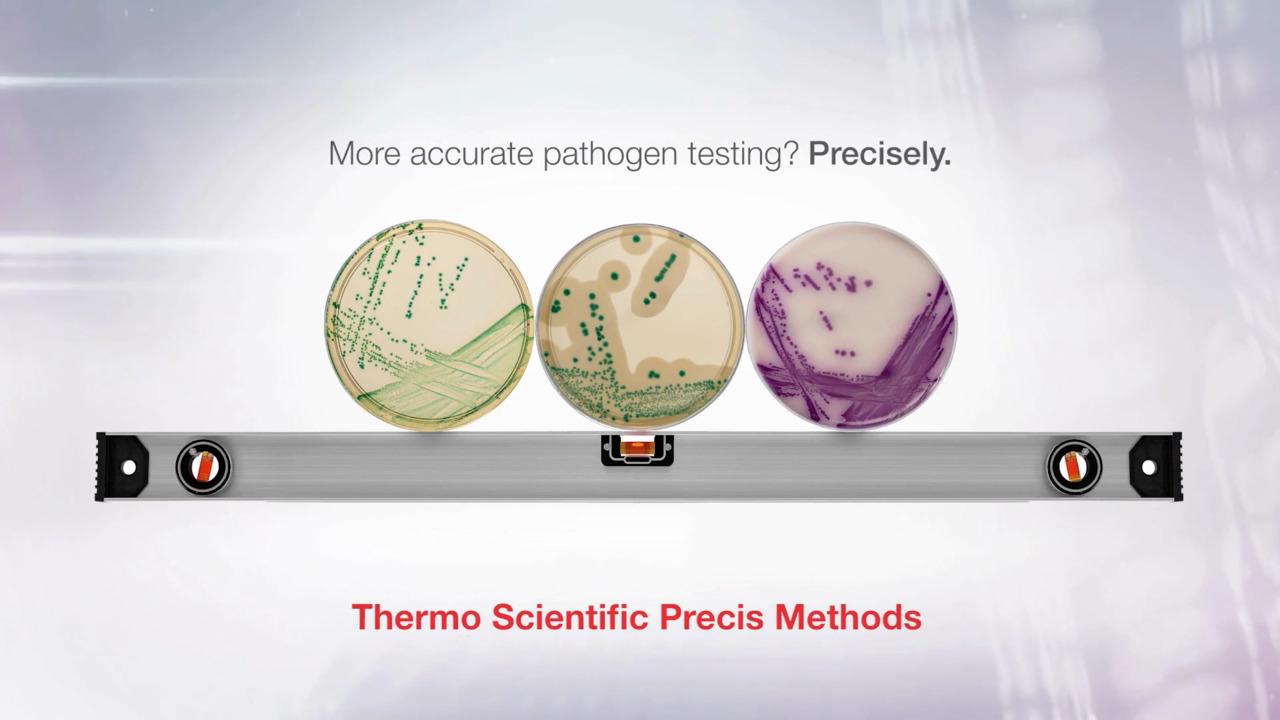Search Thermo Fisher Scientific

Next generation culture media technology for food testing
Reliable detection of pathogens in foods, ingredients and in samples taken from the production environment using culture media-based methods can be challenging, resource intensive, and time-consuming.
The introduction of chromogenic agars in recent years has made it possible to simplify the workflow to a single enrichment followed by a single plating step, but this has sometimes been at the expense of test sensitivity and specificity. Many proprietary chromogenic methods attempt to mitigate these issues with increased inoculation volumes or increased incubation temperatures, however this creates potential for cross-contamination or human error and necessitates the need for additional incubators.
Thermo Scientific Precis and Brilliance Methods have been expertly designed to overcome sensitivity and specificity issues without the need to carry out non-standard steps. Offering multiple benefits in handling, performance, and time to result, our workflows help laboratories to streamline testing, save costs and provide more accurate rapid results - first time.
Features
For Research Use Only. Not for use in diagnostic procedures.
